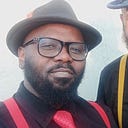The Passion of Michelangelo
“That boy will beat me one day,” remarked a tutor to a friend, watching the young Michaelangelo work his chisel and hammer.
Although a slow learner in the beginning, he went on to become better than all the other boys in the apprenticeship, and in time — better than the tutor himself.
Michelangelo was a great believer in hard work, that typical trait persistent in all men of Genius. He held that there was nothing which the imagination conceives that the mind cannot do. “If people knew how hard I had to work to gain my mastery,” he once remarked, “it would not seem like genius at all.” He attributed all his prowess to studying a little more, and working a little harder than his contemporaries.
When he was a boy, his parents, seeing his interest in the arts, declared that no son of theirs would ever follow the discreditable path to poverty that the profession of an artist would lead to, and forbade him from ever pursuing it, punishing him for covering his walls and furniture with sketches. His passion, however, burned in him like a coal, and would not let him rest until he had made a name for himself in the field. A few years later when he was a young man on his own, it seemed for a time that his parents had been right, for at one stage of his life, he was so poor that he could not afford to have his younger brother come visit him where he was working because he had only one bed which he shared with three other workers.
But he pursued the work with such relentless vigour that during his early years he lived a very frugal life, a little bread and wine was all he needed for supper. He would often rise in the middle of the night to resume his work by candlelight, and on some occasions, would be too tired to undress, and slept in his uniform, ready to spring to action as soon as he was refreshed by sleep.
His work was filled with such incredible detail that he would take days, sometimes weeks working on one specific feature of his art, such as bringing out the detail of a bulge of a vein on the arm, or working on the striation of a muscle fiber on the thigh.
“I do not see any progress since my last visit,” said a friend to him once on a returning visit after several weeks.
“But,” replied the sculptor, “I have retouched this part, polished that, softened that feature, brought out that muscle, given some expression to this lip, more energy to that limb, etc.”
“But these are minor things!” exclaimed the visitor.
“Perhaps,” replied the great artist, “but minor things make perfection, and perfection is no minor thing.”
That infinite patience which made Michael Angelo spend a week in bringing out a muscle in a statue is what made all the difference between works of the ordinary and that of Genius.
During his labors at the Sistine Chapel, while composing the matchless works of “Creation” and the “Last Judgment,” he was so focused on completing the work to perfection that he refused to meet anyone, even at his own house, so as not to have his focus swayed. A concerned friend once asked him, “why do you live such a solitary life?” To which he replied, “Because art is a jealous mistress, she requires the whole man.”
Once the momentous work was completed, he immortalized himself through the works of his works of the Angel, Moses, The Last Judgment, The Creation of Adam, and David.
Even in the last years of his life, already famous, the 89 year old would still be found chipping away at a block of marble or painting some work of art on a canvas, working as fervently at 89 as he had done at 20.
His last, unfinished work, the Pietà Rondanini, can be found today at Sforza Castle in Milan. While most men would recline at an easy chair and take pride in being elevated to the status of modern Genius, he would cheerfully say “Ancora imparo!” meaning; “I am still learning”.
Read more in my new book! The Trials And Triumphs of Hyperachievers
